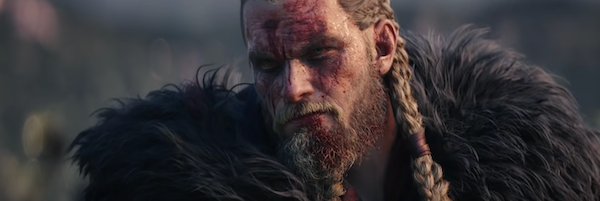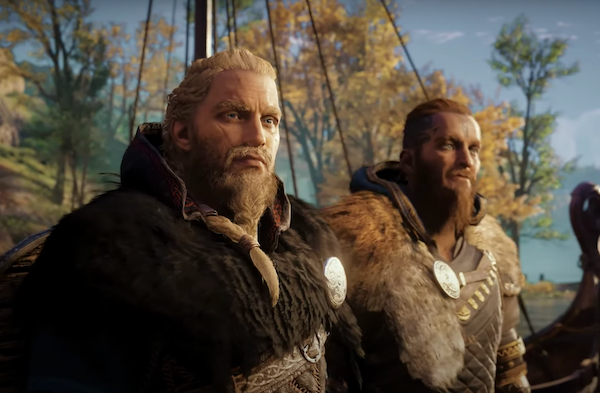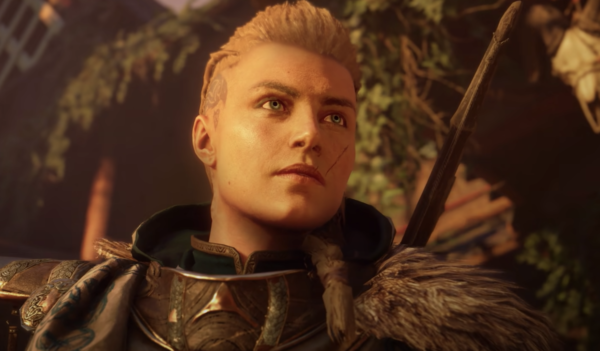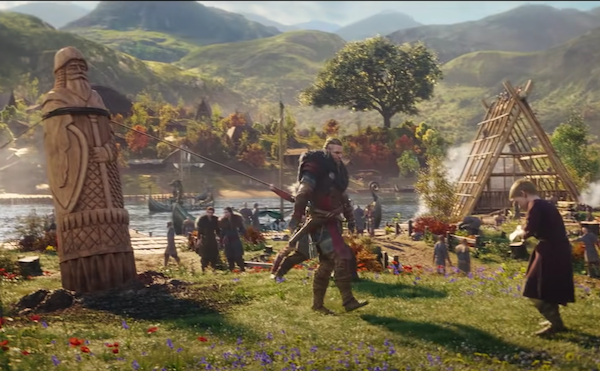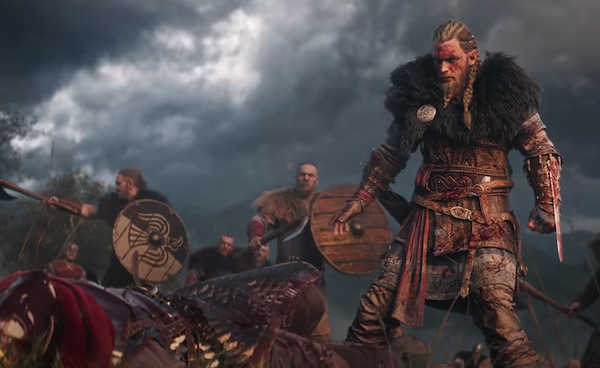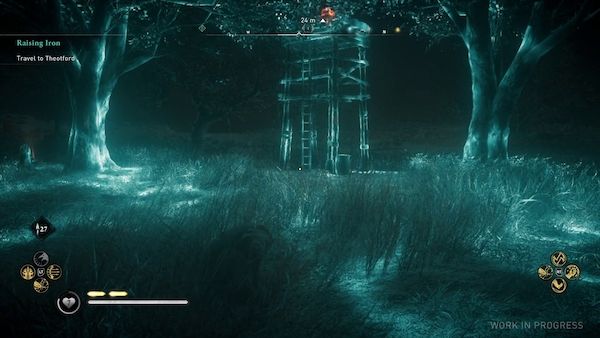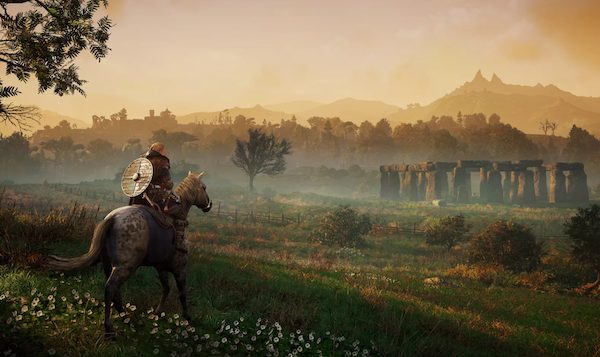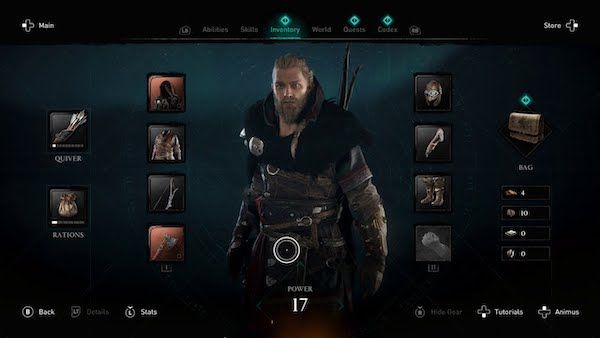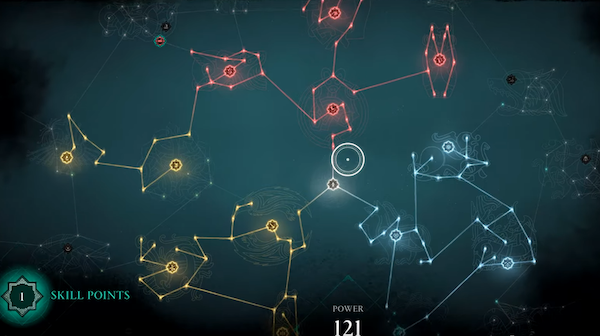[Editor’s Note: Some minor spoilers ahead for the upcoming video game Assassin's Creed: Valhalla, though the intent is to keep this early review as spoiler-free as possible.]
The time has come for Ubisoft's Assassin's Creed: Valhalla to be released into the world. It's been two years since the release of the last main Assassin's Creed game, Assassin's Creed: Odyssey. What Ubisoft has achieved in both expanding the main arc of this franchise and in improving upon past Assassin's Creed installments is noticeable and commendable; Valhalla is a unique gaming experience worth getting stuck into. And while I'm relatively new to the Assassin's Creed world as a player, I had no trouble at all sinking into this franchise thanks to Valhalla and was soon drawn into a game which contains vast improvements on past installments through the execution of its visual and technical design as well as the story it tells.
I'll break down my experiences playing Valhalla below without going too far into spoiler territory. But you should know right up top that I've come away from Ubisoft's latest a changed player — and that's a good thing. Valhalla is exactly the kind of game you want to play, with an enthralling story that stands on its own as well as part of the grander Assassin's Creed narrative and action-packed gameplay that will leave you as breathless as if you actually took up a battle ax and shield and plunged into battle. Keep reading if you're curious to know even more.
Story
The greatest strength of Valhalla is the story it is interested in weaving together. Like its previous installments, Valhalla is an immersive experience with a carefully considered world which is no doubt the result of a close study of actual history and Viking lore from the game's team. But, in a twist which perhaps hits closer to home in a notably intense year, there is a considerable amount of emotional stakes woven into Valhalla which helps to bring players into its world more readily and more easily.
As a refresher, here is the synopsis of Valhalla:
Become Eivor, a mighty Viking raider and lead your clan from the harsh shores of Norway to a new home amid the lush farmlands of ninth-century England. Explore a beautiful, mysterious open world where you'll face brutal enemies, raid fortresses, build your clan's new settlement, and forge alliances to win glory and earn a place in Valhalla. England in the age of the Vikings is a fractured nation of petty lords and warring kingdoms. Beneath the chaos lies a rich and untamed land waiting for a new conqueror. Will it be you?
It's hard not to love Eivor as a character and as a personality that gets mapped onto your own headspace as a Valhalla player. Whether you choose to play Eivor as a male or female — a decision which, unlike previous Assassin's Creed installments with the option, doesn't mean sacrificing gameplay quality — you will feel bonded and endeared to Eivor as a person.
One of the reasons I was so drawn to Valhalla and was subsequently keen to review it was because of its offer that players can choose Eivor's gender and move between genders at any point in the game if they so choose. While firing up the game, a message noting that Valhalla was created by folks from varied backgrounds extending to their gender and sexuality flashed on the screen. That was something I couldn't recall having seen before, but seeing it and knowing that that would be reflected across the game and, specifically, in regard to Eivor's presentation, felt reassuring to me. It's remarkable how the simple act of being able to choose the gender of the character you're going to be spending hours upon hours with and, as you get further in the game, being able to customize that character's appearance can feel so revolutionary, especially as a nonbinary player who is borderline anxiously attuned to the gender binary which exists in the real world. The careful consideration of how Eivor's gender is expressed feels accessible and modern while still holding true to the fact that men and women alike could, say, both find respect as warriors in the Viking era. Furthermore, my nerves around how Eivor's gender would be discussed as I moved through the world of Valhalla eased as time went on. For the majority of my gameplay experience, I played Eivor as a female. With every new character I interacted with, it was clear that the dialogue and story elements made a conscientious effort to not focus on gender that felt reductive or ignorant; Eivor is simply Eivor in Valhalla. There is no discernible difference in how the character is treated or how events play out when it comes to Eivor's identity.
The story of Valhalla ties in themes around family, honor, and fate. Eivor is a warrior marked with a specific destiny, one which involves impending tragedy and is tied to the fate of the future of humanity. Eivor is an orphan, adopted by a Norse clan leader and raised with a chip on their shoulder due to events of their past. The singular thirst for glory fuels Eivor, but there is nothing selfish about Eivor's pursuits here as Eivor's adoptive brother, the very lively and very fiery Sigurd, is of a similar mind. The bond between Eivor and Sigurd is, by and large, the emotional anchor of Valhalla, and the decisions each sibling makes in the alliances they choose, the quests they embark on, and even the people they let live or die will affect the other in major ways. Without spoiling the biggest beats of the story, you would be wise to take any and all talk of how Eivor's actions in Valhalla will tie into the grander lore of the Assassin's Creed franchise. The writers behind Valhalla's story have made surprising and rewarding decisions around tying this focused installment to the franchise as a whole which, when you do learn what's at stake, makes the game even more thrilling to dig into.
The action of the story revolves around Eivor, Eivor's brother Sigurd, and their Viking brethren traveling from their home in Norway to England to make a new life for themselves. Once there, it is evident that claiming a slice of England for their own will be much more difficult in a country still marked by the attempted colonization efforts of the Roman Empire and a reticence (to put it mildly) from various factions, from the Danes to the Saxons to the Picts to Britons to other Norsemen, to play nicely and share the land. England at this time in a disjointed one, broken up into four major kingdoms — Mercia, East Anglia, Northumbria, and Wessex — and ruled by various, nefarious figures that are just some of the many foes you will need to get past in your quest for glory. As the game progresses (and without spoiling anything), it becomes clear Valhalla has ambitions to take players even beyond the borders of England and thus, expand the story even further. There mere promise of this aspect of story development is intriguing and assists in getting you emotionally invested in the game at hand.
And, if settling England for your own wasn't enough of an all-consuming quest, it's worth it to remember that this is, after all, an Assassin's Creed game. Valhalla wastes no time laying the groundwork for Eivor's slow pull into eventual recruitment into the Brotherhood, with two members of the shadowy group introduced within the first hours of gameplay. Eivor is hesitant to embrace these outsiders but that caution soon gives way to strong alliances throughout the game. In between raiding, building a settlement, and claiming vast swaths of England for their Norse clan, Eivor will be tasked with a variety of Brotherhood-related quests, including rooting out members of earlier iteration of the Templars, the primary Assassin's Creed foes.
Gameplay
When I deemed Valhalla an "escapist epic" in the headline of this review, I wasn't kidding; you will lose track of time as you play this game. Considering we're in the latter half of one of the toughest years in recent memory, losing oneself inside a game and transforming into a Viking battling their way through Dark Ages Britain doesn't sound bad. Valhalla succeeds in the ways in which it fleshes out Viking life, with a notable emphasis and encouragement to pursue raiding as both a pastime and productive endeavor. And look, I love getting stuck into battle as much as any other player, but I also found true enjoyment in the other aspects of Viking life on offer here. Valhalla rewards you for stopping and talking to friendly NPCs (and this game will never lead you astray as bold warnings about unfriendly areas flash across the screen) or enjoying diversions like flyting (the Norse version of a rap battle), dice games, and drinking games.
The ability to take a break and dig into some of the lighter aspects of Viking life is further encouraged in the settlement building aspect of gameplay. Once in England, it is necessary to raid in order to acquire the materials to keep building various key elements like the stable, the forge, and even the Brotherhood outpost in your own settlement. The ability to choose when you do and do not go on a raid or leave your settlement means that when you're at home, you can take the time to explore, read, and interact with NPC members of your own clan and get a richer feel for this world. Conversations with other Norsemen and women also highlights the attention to detail, too, as bits of Norse slang are peppered into the conversation and dutifully translated in the subtitles.
When it comes down to it, I'm still undecided on whether it's more fun to take advantage of Valhalla's open-world play, which eases the stress and lets you explore and loot at your own pace, or plunge headfirst into a raid. There are raids aplenty once you're in England, but not all raids are created equal. As you scan your map looking for a new target, there are helpful hints about the degree of difficulty of each raid. Similarly, as you move through the world and meet new kinds of NPCs, the information will materialize in a catalog which, when it comes time to raid, you would do well to read in order to learn so you know how to defeat your enemies in their various forms. There is a visceral pleasure in raiding which a player will likely never encounter in real life and Valhalla succeeds in allowing you to go completely hog wild as you tear through opponents on the battlefield. As you progress and acquire special finishing moves, the camera will jump into the cinematic mode and let you enjoy the fruits of your skills as you watch Eivor absolutely decimate some unsuspecting Briton with ease.
One big issue I have — and this is said knowing that patches and upgrades will eventually materialize in the future — is a clunkiness to the fighting. Whether you're caught up in a raid or you're leading a full-on battle, you quickly become one in a tangle on NPC bodies when the weapons come out. For a game in which one of its primary pillars is battling on scales of different sizes, this is a bit troubling. The risk of certain commands not working or an NPC foe killing you despite you doing your damndest to make a particular attack move happen are frequent occurrences. And if there is one major gripe I have, it could be filed here as it relates to the clunkiness of the bow and arrow Eivor always carries around. While that dumb bow and arrow are good when they are in use, putting it away and carrying on with the task at hand is neither easy nor helpful.
A major plus for Valhalla is that you will never lose focus of the task at hand or even lose yourself, technically speaking, within the world. When you're playing a game that encourages and subsequently rewards taking a little extra time to nose around your surroundings, it's nice to also know that you have a few easy ways to guide yourself back to the bigger quest at hand. A compass at the top of the screen helps you easily identify the way of your primary quest, the nearest artifacts or treasure, as well as locations of note. Accessing your map helps you locate places you've synchronized to for quicker travel. And, when all else fails, you can use the power of Odin's Sight via your raven Synin to help you spot valuable locations depending on your needs from the air.
Another big plus for Valhalla: The minimal focus on side quests. There are still opportunities to while away some time tackling a smaller quest to help you level up, but it doesn't feel as if your experience playing the main arc of Valhalla will be lessened should you decide to ignore those side opportunities. And when you do decide to take Valhalla up on its side quests, like, say, helping a crazed woman collect viper eggs, you'll soon realize Ubisoft is not too interested in taking itself seriously and it willing to let some absurdity commingle with its more serious storytelling ambitions.
Sensory Experience: The Look, the Feel, the Sound, and the Haptics
The sensory experience of Valhalla is another hugely successful aspect of the game in addition to the story it is telling us. The combination of the look, feel, sounds, and haptic qualities of the game are where Ubisoft's attention to detail shines through. Ubisoft has brought vitality and freshness to the Viking world and to Dark Ages Britain, removing any of the stuffiness or grimness of the time period and placing a premium on ensuring there is a vitality to the world it has rendered.
Regardless of the season or the location, the look of Valhalla is breathtaking. As I played the game on my PS4, it was clear to me the visual thrill offered by the game would quickly become one of my favorite aspects of gameplay. I mean, where to begin? I think the biggest visual positive here is the use of color and light. Whether you're in an underground cavern or you're watching the sunlight stream through the autumn foliage, the way in which light and color are utilized to bring visual interest is well considered. This artistic success comes through even more when you enter Cinematic Mode while horseback riding or traveling down the river in your Viking longboat. Activating this mode allows you to sit back and scan your surroundings. As you do, you can get an even better feel for the world and enjoy the details brought to make this game feel true to the time period it is portraying. When you're not consumed in a raid or a time-sensitive quest, it would behoove you to take advantage of the open-world nature of the game if only to explore and experience the world first hand. The design of the villages, monasteries, castles, crumbling Roman settlements, and even the Viking longhouse in your own settlement is crafted in such a way that you can see the chips, cracks, the wood grain, and the artistic flourishes as if you were seeing real craftsmanship on display.
Similarly, the sounds and haptic experience of Valhalla helps foster a more well-rounded gameplay experience. Whether it is listening to the relatively successful Norse accents on display, take the time to listen to a song from one of your men as you sail around England, or even listen in the distance for approaching NPCs, the sounds of Valhalla feel smooth and well-integrated. The haptics are similarly well-integrated, whether they are utilized in a battle to jarring and thrilling effect or they come out in full force when you play a drinking game and proceed to stumble away into your next mission. Even the soft thump following a daring dive from a high point post-synchronization leaves your heart racing for a minute or two, your controller shaking for a brief moment.
On the Technical Side
In the run up to Valhalla's release, there has been a repeated emphasis on customization. It's an enticing selling point, to be sure. Reminding prospective players in nearly every trailer or piece of gameplay preview footage that they will have the opportunity to control their Eivor's style of gameplay (as well as Eivor) is a real draw here. As I got further and further into Valhalla, it was clear to me that Ubisoft didn't skimp on this promise, offering up a variety of opportunities to ensure the technical aspects of my gameplay experience were just as enjoyable as the aesthetic ones.
This customization aspect plays out primarily via your Skill Tree, with the ability to flesh out skills related to stealth, stamina, strength, hit points, and beyond. Earning points through the completion of battles, quests, and even participating in minor Viking pleasures like the game of flyting will earn you opportunities to return to the Skill Tree and claim new skills for your own. You're able to preview those skills before claiming them, too, which allows for a fairer assessment of what you're getting into. Similarly, indulging in the open-world play of Valhalla means you're rewarded with the opportunity to acquire artifacts like books of knowledge which automatically give you the flashier finishing moves or special tactics that will be handy while you're in the midst of battle. It feels satisfying to see your skills grow and develop in a tangible way. I would be lying if I said my confidence as a player didn't get a boost every time I added a new branch onto the Skill Tree as I progressed through the game.
Another noticeable improvement in Valhalla is in the loot offerings. Previous Assassin's Creed games have left players loaded with junk loot that requires frequently wading through and selling off. Here, in Valhalla, there seems to be a usefulness for every bit of weaponry, armor, and even goods or materials you acquire as you either raid or explore the world around you. I never felt bogged down by a ton of useless materials, nor did I ever feel like there was a lack of storage space for the materials I acquired. In this same vein, Valhalla has also pared down the kinds of weaponry you can acquire. Be it a sword, a spear, or an ax, the choice of weaponry here is precise and concise, allowing a player to streamline their decision-making when it comes to equipping themselves.
Final Thoughts
Assassin's Creed: Valhalla is, without a doubt, offers the exact brand of escapism many players will need at this point in the year. It is a game that welcomes you with open arms, ushering you into its world and encouraging you to stay open to all of its possibilities. There is plenty to sink your teeth into with this game, but it's also clear there are plenty of new routes the game can create as the Valhalla installment of the Assassin's Creed franchise evolves over time. Ubisoft's decision to strip back on the junkier qualities of previous installments — think tons of side quests or a plethora of useless loot you acquire quickly — was a smart one here, with Valhalla coming out to be a leaner game in a smarter way in comparison to its predecessors. While the strengths outweigh the weaknesses of Valhalla, especially when it comes to world-building and storytelling, there are some weak spots in key areas, primarily when it comes to facing your foes. What's important to remember is the weaknesses aren't necessarily insurmountable, nor do they detract from the overall gameplay experience; they're merely bumps in the road of an otherwise very enjoyable ride.
Rating: B-
Assassin’s Creed: Valhalla will be released on November 10th for PlayStation 4, Xbox One, Xbox Series X and Series S, Microsoft Windows, and Stadia. Get even more Assassin’s Creed updates here.
Allie Gemmill is the Weekend Contributing Editor for Collider. You can follow them on Twitter @_matineeidle.

